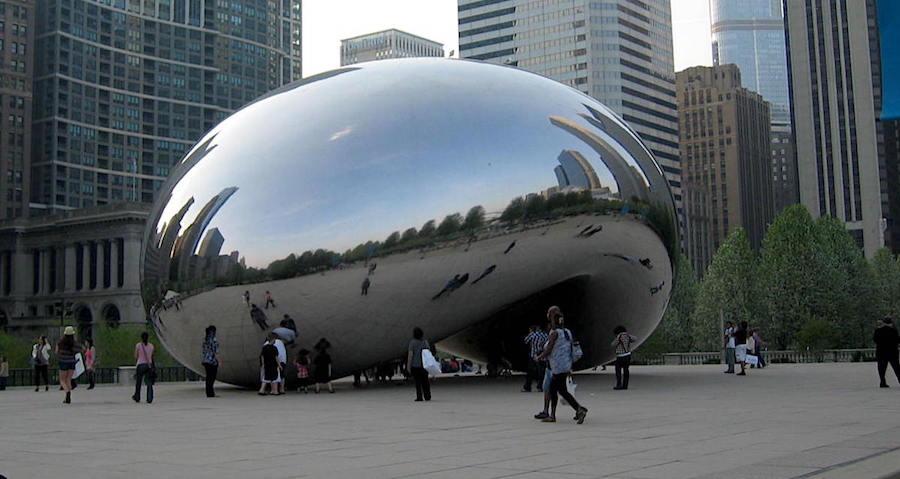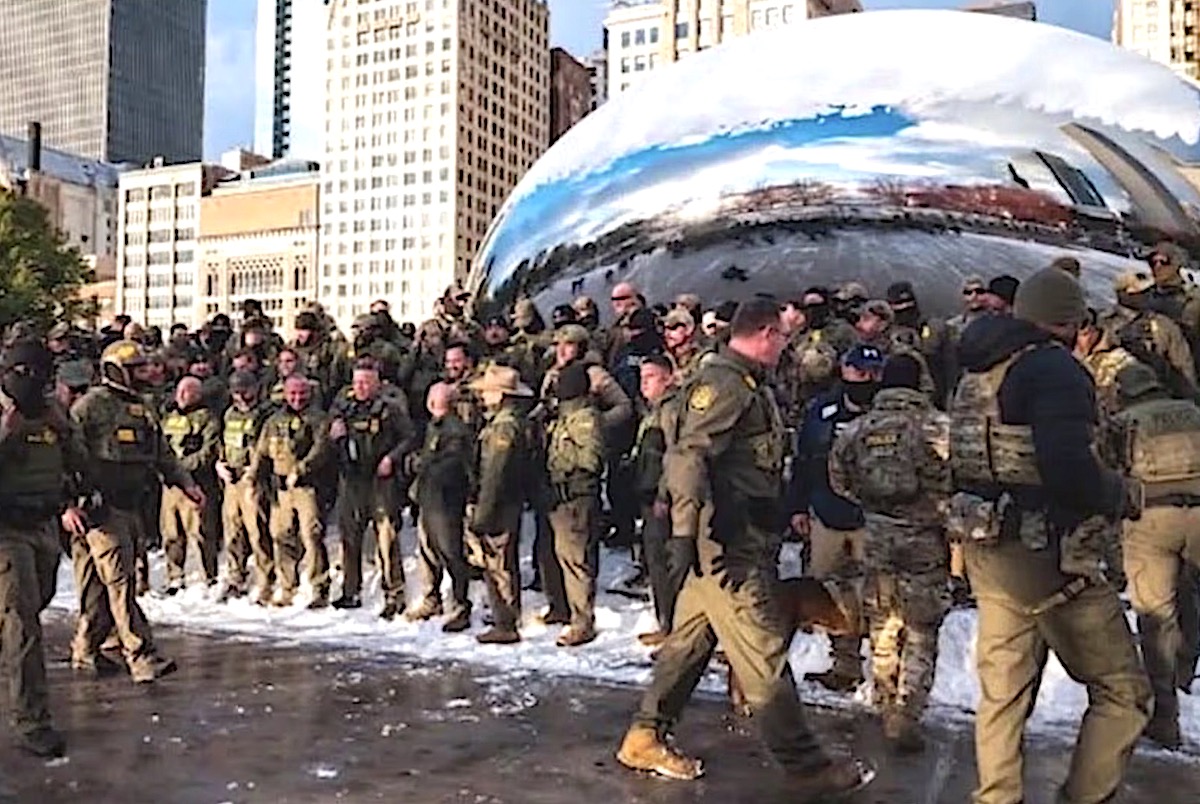Anish Kapoor has spent decades wrestling with monumental mirrors, voids, blood-red pigment and the impossible density of Vantablack — but this week, the British-Indian artist found himself staring into a different kind of abyss. A photograph, sent to him by a friend in Chicago, shows a line of armed border patrol agents posing in front of Cloud Gate, his famous mirrored sculpture in Millennium Park. Kapoor called it “beyond belief.” Then he said it plainly: “This is fascist America.”
The image, which circulated before catching media attention, appears to have been taken during a celebratory moment following what local reports describe as “military-style” immigration raids. More than a thousand people have reportedly been arrested since the federal crackdown began in September. The artist, long outspoken about the politics of visibility and violence, says he’s considering legal action. “Of course, I’m going to do everything I can,” Kapoor told reporters.
He’s done it before. In 2018, Kapoor sued the National Rifle Association for using an image of Cloud Gate in a pro-gun campaign video — a lawsuit he eventually settled out of court. This time, though, the artist seems angrier, more resigned. “It’s more complicated,” he said. “They’re not an ad agency. They’re a national army unit.”

Kapoor’s remarks have landed like a crack across the polished steel of his own creation. Cloud Gate — known locally as “the Bean” — has stood in Chicago since 2006 as a monument to reflection, literally and figuratively. Tourists gather beneath it, craning up into its mirrored belly, watching the city fold and multiply. That the sculpture has now been folded into a scene of state power and intimidation feels, to Kapoor, like an act of violation. “Abducting street vendors, breaking doors, pulling people from cars, using teargas on residential streets,” he said. “I mean — what else can one call it?”
The artist has always had a knack for revealing how form and void hold power. His response to the image feels like an extension of that project — a moral mirror held to a political moment that refuses to see itself. But Kapoor, as ever, has more than one thing on his mind.
He’s currently preparing for a major exhibition at the Hayward Gallery in London, opening June 16, 2026, his first solo show there in nearly three decades. The show, curated by outgoing Hayward director Ralph Rugoff, will fill both levels of the brutalist landmark and gather around forty works spanning five decades. It’s not a retrospective, Kapoor insists. “The Hayward isn’t a place for retrospectives. It’s a place that invites daring proposals, and I’m jumping in with both feet.”
At its centre will be two new installations: one, a swollen PVC form that bulges to fill the entire entrance gallery — “It pushes you right to the side,” Kapoor says — and another, a shadowy mountain structure rising from a sprawling red landscape. “What it does, I hope,” he explains, “is make you ask: what is this? Is it art? Why am I here? Those questions unleash emotion — they make the work alive.”
The Haywards’ description calls the second piece “a dark mountainous threshold.” Visitors will pass beneath it, as though they have been swallowed. Kapoor wants the experience to unsettle — to confront the viewer with scale and disorientation, the same forces that animate his now-infamous mirrored sculpture in Chicago.
The exhibition will also feature Mount Moriah at the Gate of the Ghetto (2022), a twisting surge of black and red pigment descending from the ceiling like a wound. Elsewhere, older works from the 1990s and 2010s act as quiet markers of his evolution — from colour-saturated minimalism to something closer to bodily abstraction. He calls it a show about “presence and absence, being and nothingness, the body and its inversion.”
Kapoor’s career has always played out between opposing poles: East and West, monumentality and void, transcendence and outrage. Born in Mumbai in 1954 to an Indian father and Iraqi-Jewish mother, he moved to London in the 1970s, rose through the ranks of the British avant-garde, and won the Turner Prize in 1991. His sculptures — often large enough to consume the viewer — have come to define the aesthetic of contemporary public art: polished, seductive, and occasionally terrifying.
But Kapoor, now 71, remains fiercely political. When Britain convulsed over Brexit, he was one of the first major artists to call it “a national act of self-harm.” When the NRA used Cloud Gate in its campaign, he accused them of “abusing art to promote violence.” The new border patrol photo seems to reopen that wound. “It’s an emblem of what happens when art is dragged into ideology,” he said. “The Bean was meant to reflect people — not power.”
Next year’s Hayward exhibition will also mark the Southbank Centre’s 75th anniversary, part of a larger celebration tracing back to the Festival of Britain in 1951. Alongside Kapoor’s show, the programme includes Danny Boyle’s You Are Here, a sprawling participatory project, tributes to Benjamin Zephaniah and Steve Reich, and a new performance by pianist Yuja Wang. “Seventy-five years is a long time,” Kapoor reflected. “Postwar optimism is gone, yes. But maybe we can build a new one — a Britain of all kinds of people, from all kinds of places, coming together.”
That’s the paradox of Kapoor’s art: the monumental form that invites intimacy, the void that becomes a mirror. His work doesn’t simply occupy space; it redefines it, forces us to feel our own scale. Perhaps that’s why this latest image — the mirrored sculpture turned backdrop to state power — hits so hard. It reveals, in brutal clarity, how reflection can be distorted.
For now, Kapoor is still weighing his legal options. But his fury is less about ownership and more about principle. “Art isn’t neutral,” he said. “It’s where we measure what we’ve become.”
Photo: Border Patrol agents pose for pictures next to Anish Kapoor’s Cloud Gate sculpture in Chicago. Photograph: Via Facebook

